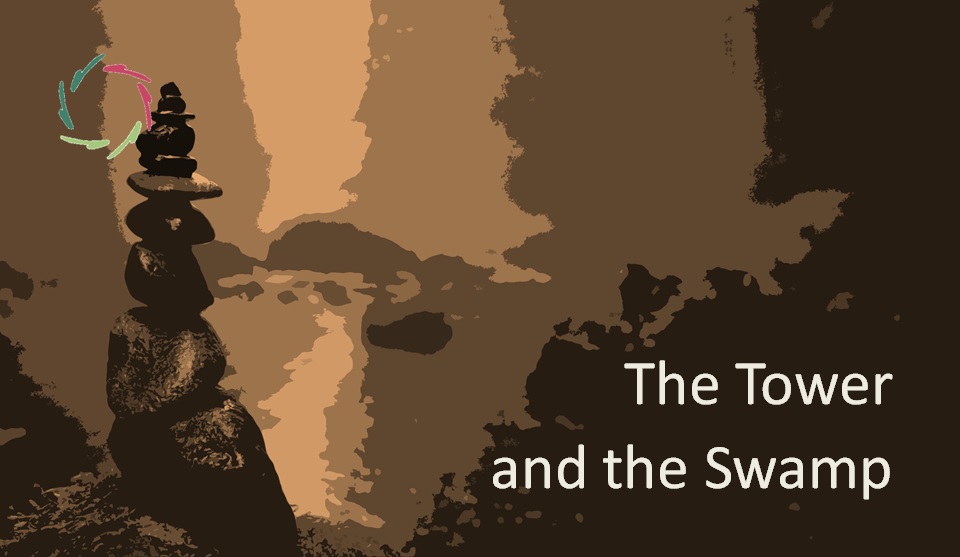Whose Identity are You?

Who needs to gain an identity by being identical? I guess nobody should. No group deserves respect if that respect is not passed on to individuals.
Identity politics
“A political approach wherein people of a particular gender, religion, race, social background, social class or other identifying factors, develop political agendas that are based upon these identities.” (Wikipedia)
Also: ethnicity, sexual orientation, age, economic class, education, religion, language. I would add medical diagnoses to the list, such as ‘chronic pain patient’ or ‘chronic fatigue sufferer.’ That may make things even more challenging since the feeling of belonging to such a group may non-consciously provoke social nocebo effects.
In many cases, ‘identity politics’ also stands for the right of that group to defend itself against other groups who are seen as oppressors. For instance, the male is the oppressor of the female; the healthy person is the oppressor of the chronic pain patient. Distinct categories may systemically form simultaneous (combinations of) oppressor/suppressor dyads. Of course, this makes it difficult to avoid any disproportionately affected situation in politics. Still, one should try to avoid excesses.
Identity, not identical
If one identifies with a group, one risks becoming the identity of that group, losing one’s identity in that group. That is a social move, but it comes with a personal price. Such a price may be more readily accepted in some cultures, but nevertheless.
The talking about a specific group in media becomes the talking about the individual’s identity without that individual’s control. If the group gets – appropriately or not – pinpointed in some essence, this also becomes the individual’s essence. This may feel scary, even threatening, especially if one feels a halfling without group identity. Something is pretty wrong in this.
Unneeded complications
Identity politics may lead to critiquing anything skeptical being said about one’s group. Either the skepticism may sound denigrating, or it may sound like not taking the group seriously, or it may seem too encompassing, or anything. Invariably, some may feel offended by the slightest inkling of skepticism, feeling inclined to cancel (de-socialize) the skeptic. In such a climate, only superficiality may survive, which should not be the purpose.
It also leads to the affirmation of groups as standing in opposition to each other. This hinders the integration of individuals – and groups – in a broadly common society in which the differences are cherished, not seen as rightful causes for embattlements. In this, political schisms may be caused rather than recognized.
There is no easy solution to this.
Is there even any group essence?
Is any individual person reducible to any ‘group essence’? Does this not equal the objectification of the individual within the group? Mere-ego might like this, but it can be detrimental to the total person.
Moreover, in-group power-hungry subjects may misuse such objectification to gain personal power. Ego meets ego, but not on a profoundly ethical basis.
Us – them
If the individuals of a group feel oppressed, then the group identity may provide the power of numbers. Indeed, how could one fight for the ‘equal rights’ of any group if that group is not acknowledged to even be one?
But on the other side, with group acknowledgment, how can different ‘identity groups’ relate to each other without competitive power games and survival of the fittest?
In a broad us-them environment, the individual without group affiliation may feel excommunicated, alone, and powerless against society’s oppression. Any person may then join a group out of fear ― never a good advisor, never a healthy situation.
The solution is Openness.
This is: striving to be open to the inside ― from there, prone to overlap with others in a dynamic group formation without any need for aggression against others.
Through Compassionate overlap, one may even more appreciate the individual differences. The group can be strong without hardening. There is no need for strict essentialism to demand respect for the concerned individuals. In a social striving for respect, what is asked for can be the respect for individuals in their diversity within an entity that gets a group name for the purpose — for example, women, Hispanics, black people.
In the demand itself then lies the asking respect for within-group diversity. This goes in both directions, from and towards specific groups. For example, for the occasion, a white person may ‘feel black’ in a reaction against the oppression of other black people.
“Black lives matter ― We are all black!”
I’m white, but I’m also black, red, yellow, and even green if need be.
With much seriousness and some supposedly unintended humor, President Kennedy once exclaimed: “Ich bin ein Berliner!” (*) His aim was excellent. “Wir sind alle Berliner,” and so much more ― especially if there is oppression because of some projected identity. In any such instance, we should all take that identity.
Somewhat utopic?
Well, then, I’m green and I’m proud!
―
(*) In Germany, a ‘Berliner’ is a kind of doughnut.


